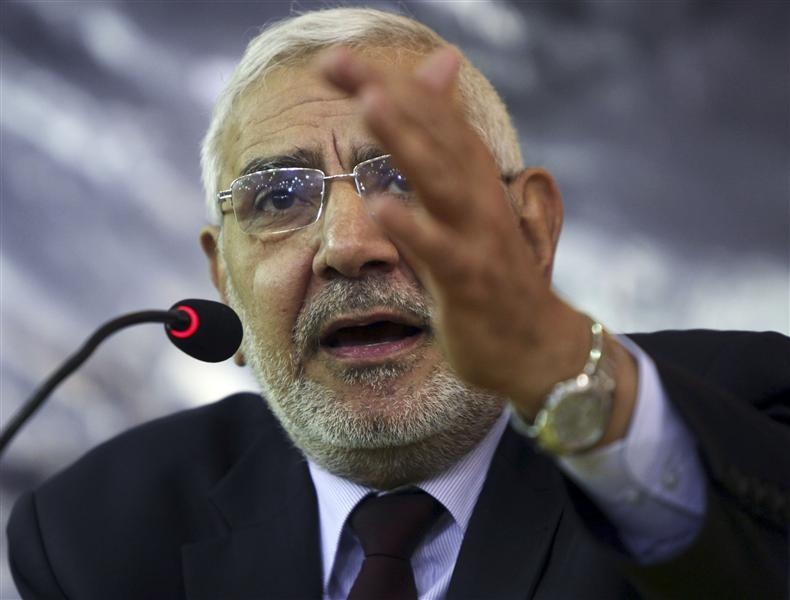Latest NEWS
- Aswat Masriya, the last word
- Roundup of Egypt's press headlines on March 15, 2017
- Roundup of Egypt's press headlines on March 14, 2017
- Former Egyptian President Hosni Mubarak to be released: lawyer
- Roundup of Egypt's press headlines on March 13, 2017
- Egypt's capital set to grow by half a million in 2017
- Egypt's wheat reserves to double with start of harvest -supply min
- Roundup of Egypt's press headlines on March 12, 2017
New hospitals priority, not mosques, churches: Abul-Fotouh

Egyptian presidential candidate Abdel Moneim Abu El Fatouh delivers a speech to people northeast of Cairo - Amr Dalsh/REUTERS
Presidential candidate Abdel-Moneim Abul-Fotouh on Wednesday said the Muslim Brotherhood would not receive special privileges if he became president and that Egypt needed more farms, factories and hospitals, not new mosques or churches.
The moderate Islamist, who was expelled from the Brotherhood when he announced his intention to stand for the presidency, made the comments at a lecture organised by the Catholic Jesuit School and attended by a predominantly Christian audience.
The lecture opened with a minute's silence for the recently deceased Coptic Christian Pope Shenouda III and developed into a lively discussion about citizenship, Islamism, the Muslim Brotherhood, the economy and a range of other topics.
When questioned on his controversial departure from the Brotherhood, Abul-Fotouh said, "I had already decided to resign from the Brotherhood when I decided to run for the presidency."
"If I become president, there will be no privileges for the Brotherhood," he added, earning applause from the audience. He also criticised the media for claiming there was a war between him and the group. "My only enemies are the enemies of Egypt," he said.
He vowed not to interfere in the building of churches but added that what the country really needed was not more religious buildings, but rather "farms, factories and hospitals."
In response to a question on citizenship, he said, "Any Egyptian has full citizenship rights regardless of his religion or ethnicity and all citizens have the same duties and rights."
He went on to say that the Mubarak regime discriminated against minority groups and was responsible for the Two Saints Church bombing in Alexandria, which killed 21 people on New Year's Eve 2010.
Abul-Fotouh revealed he will announce his electoral programme on after submitting his candidacy papers to the Higher Presidential Elections Commission on Thursday.
Health and education would be his priority as president. He believes in free education and would adopt the Cuban model of fighting illiteracy, he said. He also revealed that he would adopt a full health insurance system.
Regarding the constituent assembly, he said the media had exaggerated the danger of Islamists forcing through radical changes to the constitution.
The last question he answered was from a professor from South Sudan about Egyptian-South Sudan relations. Abul-Fotouh criticised the Mubarak regime's handling of the situation in South Sudan and said Egypt must begin a new era with the newly formed country. He also condemned Sudanese President Omar Al-Bashir for leading a military regime that used religion to justify its oppressive policies.
Abul-Fotouh repeated his accusations that unnamed presidential candidates were being funded from abroad.










